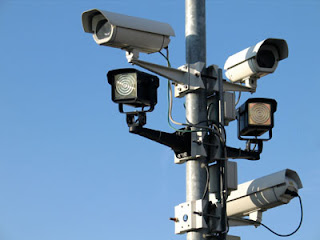Many companies or firms have images (logos) which we learn from a very young age to firmiliarise ourselves with. For example everyone can see and know the Starbucks logo, along with also the very famous Apple logo.
Of course everyone can now buy or sell products online, all thanks to the internet and of course our debit/credit cards. This just keeps making things easier.
.jpg) I personally could not imagine my life without the internet, I sadly spend a majority of life using it. We can do everything via the internet, for example I could even go online right now and check my bank balance and statements.
I personally could not imagine my life without the internet, I sadly spend a majority of life using it. We can do everything via the internet, for example I could even go online right now and check my bank balance and statements.
However what about them parts of the world that cannot easily access the internet, it seems they must miss out terribly due to the fact that many things are done online now, this creates a digital divide for different parts of the world. Without the internet, you will find it is very hard to do such things as apply for jobs and keeps connections. It is deffinate to say that everyone should start getting online if they want to keep up with present times.
http://youtu.be/fCIB_vXUptY <- the video I have posted here talks deeply about the Digital Divide.
http://youtu.be/U1XWvs7SL5I <- In this video you will hear Obama talk firmly about the usage of America on the internet.
In the map I have posted above you can see all the many different divides around the world and who currently uses the internet the most.
The Digital Divide could be because of many different things, for example, race, age or income.
Income levels and educational attainment are identified as having the largest explanatory power to explain ICT access and usage, with age being a third important variable, which means that prototypical "victims" to the digital divide can be foremost characterized as poorer, less educated, and older.
http://www.bbc.co.uk/worldclass/17461332 <- This link shows a rural town in India receiving their first computer. The video proves just how well computers help children's education and learning.
http://news.bbc.co.uk/1/hi/technology/8548456.stm <- BBC looks more into the side of people who live in areas with lots of internet usage, and why certain people do not join in.
I cannot imagine how it must feel to be my Nan's age and not have a clue what i'm doing when it comes to sitting in front of a computer. It must be extremely hard to get to grips with, my Dad recently started work as A community officer and constantly complains at the fact that he is going to have too type things up on the computer. However, there is always going to be support and help for the older generation when it comes to the web.
http://youtu.be/7yOPlToT81A <- This video shows the support older people can receive.
We all, without a doubt, rely on the internet. As a student, I can access Breo to find out certain important information for my units, I can email to apply for jobs, and keep in contact with friends at home. There are of course many different ways to use technology, you could use it for the social side, or for business. You may also find that you will earn better wages and get better jobs if you are computer literate.
http://www.walesonline.co.uk/news/wales-news/2011/10/20/richer-people-in-wales-use-the-internet-but-poorer-people-are-more-likely-to-use-social-networking-sites-91466-29627272/ <- This link explains how people who use the internet are usually richer, but the ones that use social networking sits such as Facebook and Twitter actually end up less well off.
It is very hard to keep up with the world today if you do not access a computer, it is a very important factor within the Digital Culture world.
Even though the Digital Divide is becoming very clear to us, there are of course such places like internet cafes, and now computers in airports, which lead to almost always being able to access the internet in some way or the other.
.jpg) The internet also can make very big, and exciting changes, for example, recently a video was posted on Youtube, to grab peoples attention and discuss the issue with Kony, a man that kidnaps children after killing their parents and has started up his own "child army". The video became so famous, and was posted all over social internet websites, and covered the news, without the internet this would never have happened, and the worlds attention would not have been bought to this issue so greatly.
The internet also can make very big, and exciting changes, for example, recently a video was posted on Youtube, to grab peoples attention and discuss the issue with Kony, a man that kidnaps children after killing their parents and has started up his own "child army". The video became so famous, and was posted all over social internet websites, and covered the news, without the internet this would never have happened, and the worlds attention would not have been bought to this issue so greatly.
You can find the link for the video below.
http://youtu.be/Y4MnpzG5Sqc
Overall the internet and technology have of course bought us a lot closer together, but have however at the same time made it clear where the divides are, mainly pointing out the differences between the rich and the poor, hopefully grabbing peoples attention to realize this. I would most probably have not been able to write this blog right now if it wasn't the the internet and its search engines, such as Google. Although the internet is such a reality too us, and I could most probably not imagine my life with out it now, we still need to remember that there are country's out there that have yet to touch a computer.



.jpg)

.jpg)

.jpg)







